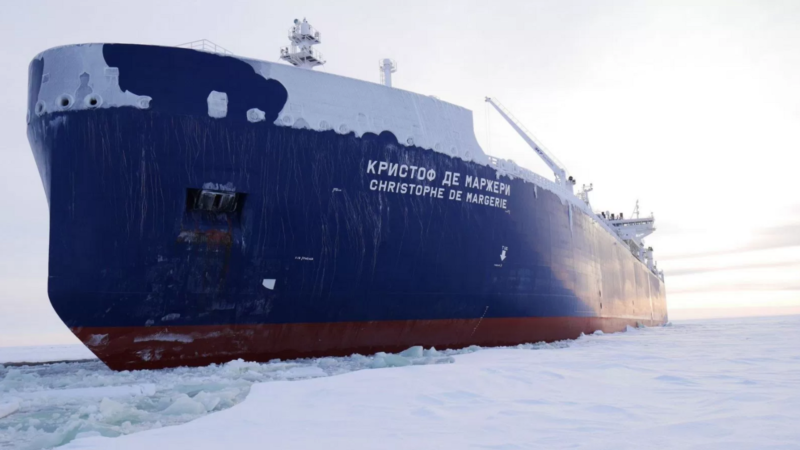A large Arctic gas buildup is testing the effectiveness of new US sanctions on Russia’s shadow gas fleet, revealing a major challenge for Russia. Since they were imposed a few months ago, the sanctions have put the parallel gas transport fleet in increasingly difficult circumstances. The inability to sell the accumulated gas and the irregular movement of ships highlight the difficulties in reaching export destinations.
The US Office of Foreign Assets Control (OFAC) recently announced new measures to “strangle” Russia’s revenues by cutting the country’s war budget. The sanctions, which have already targeted nearly 400 entities and individuals, also target several vessels involved in transporting Russian gas. Among the companies sanctioned are LNG tankers Asia Energy, Everest Energy, Pioneer, North Way, North Sky, North Mountain, and North Air, as well as three entities based in Dubai, India, and China.
The new measures focus on entities and assets supporting the Arctic LNG 2 project, one of Putin’s key gas export initiatives. Initially seen as a major part of Russia’s plan, the project aims to account for a fifth of its annual LNG production target by 2030. However, the impact of the sanctions is already clear, The Economist reports.
Analysts say Russia has struggled to find buyers for the sanctioned gas, leading to a huge backlog in storage facilities. Satellite images show ships, such as the Everest Energy, stuck in the Mediterranean and the Arctic, unable to unload their cargo or find new customers. The situation has been exacerbated by the use of ships ill-prepared for the harsh Arctic conditions and the need for risky maneuvers to disguise the origin of the cargo.
Sanctions have also affected companies such as the Chinese company Wison New Energies, which announced the suspension of all its Russian operations and projects. The growing cooperation between Russia and China, based on mutual need, is now facing a major impact due to Western measures.
While Russia has tried to circumvent sanctions through methods such as ship-to-ship LNG transfers, these efforts are far from effective. The complexity and risks associated with these operations reveal the depth of Moscow’s difficulties. The lack of regulation and crew safety are additional concerns, suggesting that the impact of sanctions is deep and far-reaching.

“Wannabe internet buff. Future teen idol. Hardcore zombie guru. Gamer. Avid creator. Entrepreneur. Bacon ninja.”

